Good vs Evil: The Hostile Brothers (Cain and Abel)
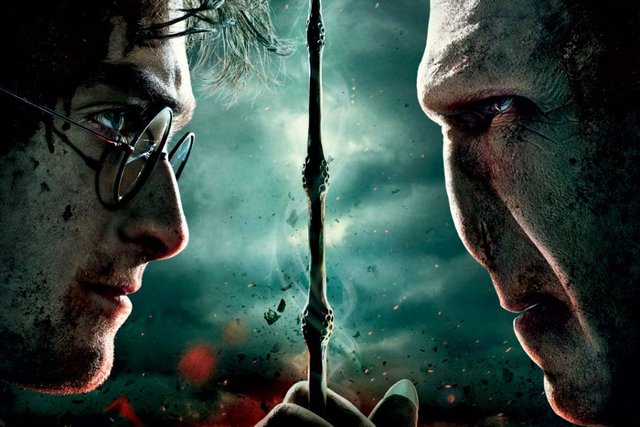
There’s a reason we absolutely crave watching the battle between Good and Evil. Luke Skywalker vs Darth Vader, Batman and the Joker, Mufasa(and eventually Simba) vs Scar, and the list goes on. We love these stories because they speak to something deeply essential to the human experience. We too face our own Sith Lords and Maleficents, be they actual people, or extraordinarily challenging events and situations. So, when we see this theme dramatized and played out in a world with the ultimate stakes, we instantly connect with it, and consciously or not, draw parallels within our own lives. However, the really captivating stories are those in which that struggle between Good and Evil happens no only without, but also within the heart and mind of the protagonist.
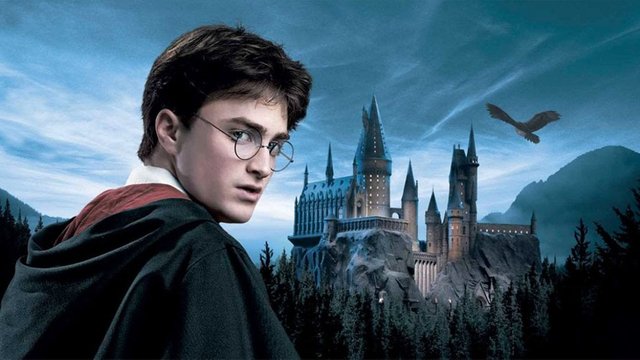.jpg)
(This is the case with Harry Potter, who is both the savior, and the cursed child, or perhaps he is the savior precisely BECAUSE he’s cursed.)
The story of Cain and Abel is one of the oldest examples of the hostile brothers in known history. And it picks up right after humanity gains self-awareness in the Biblical narrative. The story itself is short, yet a profoundly insightful case study into the human experience. And now, it’s time to unpack it.
For those joining here, the Garden of Eden represents the Paradise state of ignorant bliss, the Serpent is the presence of danger/threat, and the fruit he offers is the power of self-consciousness. When mankind accepts the gift/curse from the Serpent, we became aware of our nakedness (fragility) and ultimate mortality. Such is the “fall” of humanity from the original state of grace, our expulsion from the Garden, and the creation of the necessity of sacrifice.
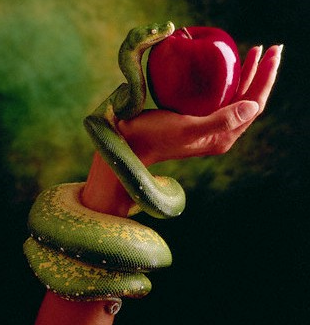
(The fruit of self knowledge, offered by the female, coiled in the Serpent. Know I used it last time, but it's still flawless)
Now, Cain and Abel are the first children of fallen man, and, as such,they must work to earn their keep (as opposed to their parents, Adam and Eve, who lived on the grace of God). Abel is a shepherd. And while that may not seem like much, our ordinary image of the dainty, harmless shepherd in modern culture was not always the case. To be a shepherd in those times meant to be tough, self -reliant, and resourceful. After all, with limited agricultural technology a shepherd had to lead, provide for, and protect his flock from the consistent threat of dangers like wolves, mountain lions, and other carnivorous animals that love to prey on sheep. And with what? A slingshot? Not exactly a task for the faint of heart.
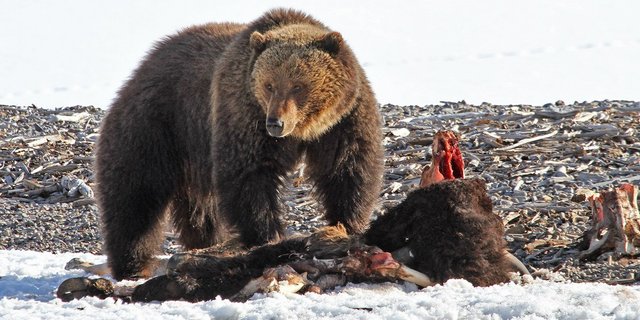 (another creature which enjoys a good sheep for a snack… yeah, no worries at all, Abel.)
(another creature which enjoys a good sheep for a snack… yeah, no worries at all, Abel.)
David, slayer of Goliath was also a shepherd, and the Christ figure is often referred to as a shepherd as well. So there’s something inherent to the duties of a shepherd that represents integrity, bravery, and purity of heart. I’m also unsure if the name Abel is a play on the word “able” meaning someone who is capable. Perhaps that’s just me reading too far into that, however, such coincidental names/roles occur semi-frequently inside the text.
Cain on the other hand, was a tiller of the ground. So, right away, it seems Cain is set at a disadvantage, as the ground isn’t exactly symbolized as a place of glamour in the Bible. If you recall from the earlier publication, God cursed mankind to eat from the ground and cursed the ground itself, so to be a tiller of the ground isn’t really a desirable vocation.
Now, the text is ambiguous as to whether or not Cain and Abel chose their respective roles, or whether such duties simply fell into their laps, and I think there is good reason for that. Some people are seemingly born into remarkably fortunate positions, as if they were somehow favored by the universe, and can leverage that favor into even greater success. And other times, a person’s good (or bad) fortune seems to be a result of their own choices. So, one’s status in life, and whether or not a person is “lucky” seems to be either the result of their own decisions, or of mere chance, or perhaps some combination of both.
It’s important to note here though, that to some degree, everyone is both Cain, and Abel, instead of one or the other. We are all both fortunate and unfortunate in our lives, though we would each much rather lean towards Abel than Cain.
“And in process of time it came to pass, that Cain brought of the fruit of the ground an offering unto the Lord. And Abel, he also brought of the firstlings of his flock and of the fat thereof.”
Here are the first sacrifices. As we’ve discussed, with mankind’s inherent vulnerability, and our awareness of that vulnerability, comes the need to work (sacrifice) to sustain ourselves across time.
“And the Lord had respect unto Abel and to his offering: But unto Cain and to his offering he had not respect.”
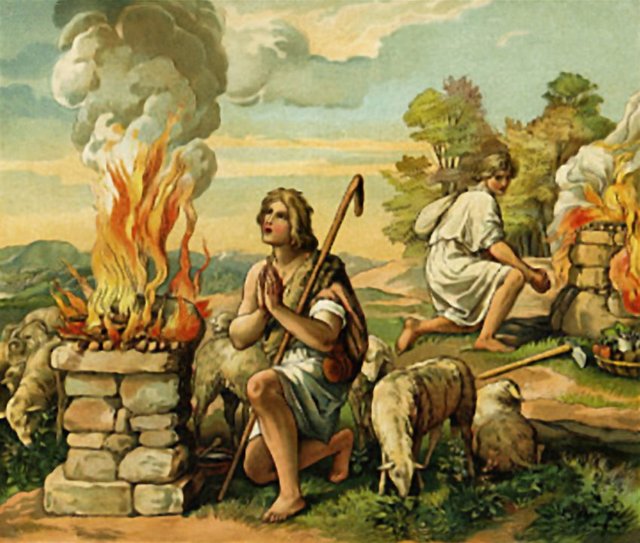
(Here both brothers are, making their offerings to God. Abel shows a sort of reverence, a humility in his posture, whereas Cain, rather than focusing on his own sacrifice is sneering at Abel from afar. He seems jealous of what’s going on with his brother, and his own offering seems to suffer for it, lopsided flame and all. Is this familiar? How many times have you resented the success of another, rather than focusing on creating your own?)
Again, seemingly arbitrarily, the universe takes favor upon the sacrifices of one brother over another. How many times has this happened to you? How many times have you poured your soul into something, gave hours upon hours to a given task, and sacrificed your time, money, and energy into something only to have it fall flat? How did that make you feel?
“And Cain was very wroth, and his countenance fell.”
Yeah, exactly.
Wroth is an archaic word, very similar to the word “wrath”. Wroth/wrath is a Deadly Sin, which is an approximation of the place between sheer rage and ingratitude. To be bitter and wroth is the antithesis of gratitude, a sort of thanklessness, and animosity towards life. And this is the exact attitude that can possess you when you see your hard-fought sacrifices rejected by life. To work hard at something and fail can make you truly spiteful and malevolent, and when Cain’s countenance fell, he tasted just that...
“And the Lord said unto Cain, Why art thou wroth? and why is thy countenance fallen? If thou doest well, shalt thou not be accepted?”
Bang. Here’s the implication that perhaps Cain isn’t doing so well because he just isn’t doing so well. The advice is that if things aren’t going spectacularly for you, maybe it’s because you aren’t making the right sacrifices, or enough sacrifices. If you’re truly committed to having something work out the best it possibly can for you, you have to be willing to sacrifice everything to it, and the Bible (still ambiguously) suggests that Cain’s sacrifices probably just aren’t up to snuff.
Now, this is the absolute LAST thing Cain, (and that part of every person that is just like Cain) wants to hear. Of course, while this is a tremendously optimistic perspective, suggesting that there is still hope for Cain to right his own ship, to Cain, in his wroth countenance, this a callous insult to his injury, the final nail in his coffin. Cain detests the idea that after all his hard work, and the failure he experienced, that his misery is HIS fault. What it ultimately comes down to, and what the fall of mankind comes down to, is that Cain, just like his father, refuses to accept responsibility.
We know how things went down the last time mankind denied responsibility for his suffering, so let’s see how it plays out this time…
“And Cain talked with Abel his brother: and it came to pass, when they were in the field, that Cain rose up against Abel his brother, and slew him.”
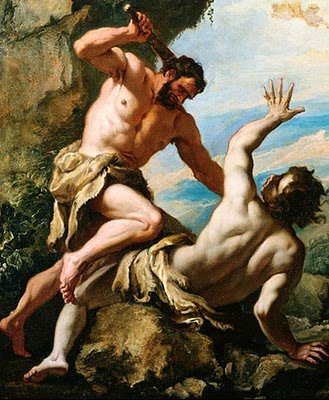
(A dark moment)
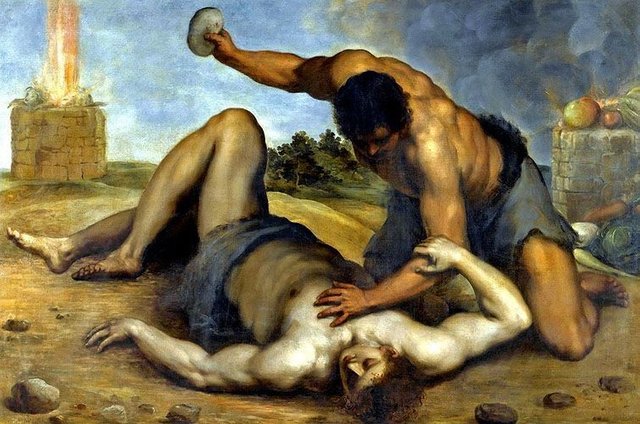
(the first murder)
Well… this is the absolute worst thing Cain could have done in this situation, which is what makes it archetypal. This story isn’t finished just yet, but for now, we’ll leave things here, along with a few questions for you to contemplate.
What does this killing mean to you, and what will be the consequences? And furthermore, how might you have tried slay the Abel in your own life?
Congratulations @unchartedself! You have completed the following achievement on the Steem blockchain and have been rewarded with new badge(s) :
Click here to view your Board of Honor
If you no longer want to receive notifications, reply to this comment with the word
STOPDo not miss the last post from @steemitboard:
hi @unchartedself
I only wondering - which guy is good one. I presume that harry potter is pure evil? :)
ps. thx for dropping comment in my latest post and resteeming it. I appreciate it a lot.
Yours
Piotr
Howdy! It's a little more complicated than that. Harry represents the battle between Cain and Abel. Cain being the dark side of him and Abel being the light. So he's both good and evil in one person. Just like you, me and everyone else!
Also, it's my pleasure. I like the project you're trying to undertake and would be glad to help in whatever other ways I can. Seeya!